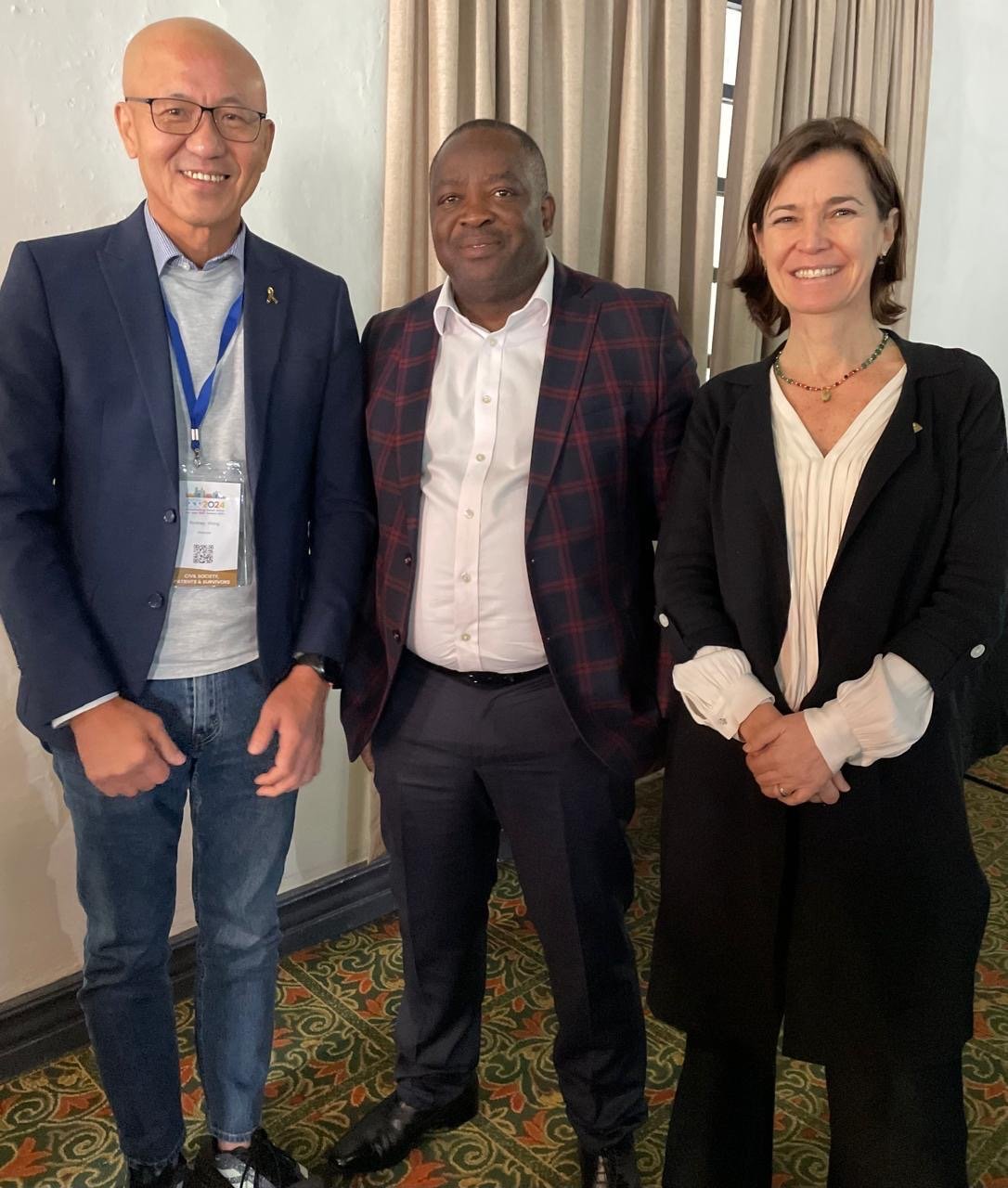David Kombe, Executive Director of Kayula Foundation spoke with us.
Kayula Foundation (Zambia) is one of the beneficiaries of the "Home Away From Home" program, by CCI and Foundation S. This program aims to decrease treatment abandonment of children and adolescents with cancer by helping CCI member organizations provide a second home for patients and their caregivers, close to health services. Kayula Foundation began the construction of their accommodation facility for children with cancer and their families. ç
The home will host 96 people, representing over a 90% increase in their capacity. They expect to improve the survival rate by 10% in the next 3 years (currently, only 25% of children with cancer in Zambia survive the disease).
David Kombe, Executive Director of Kayula Foundation spoke with us. He described what being part of the Home Away From Home project means.
David along with CCI president, Rodney Wong, and CCI Vice President, Alejandra Méndez.
What has it meant for your foundation to be a beneficiary of the Home Away From Home (HAFH) program, and how has this impacted your ability to help the community?
The awarding of the home away from home grant to KCCF signifies a dream come true. For many years we have struggled paying rentals for the transit home currently used. Rentals are a very big burden on our part and a big threat to the sustainability of the project. So this grant and project shall provide financial sustainability to the foundation and an assurance to the community of our serious commitment to continue providing and supporting the fight against childhood cancer in our country.
Could you provide some figures on the number of people you have been able to assist thanks to the support from HAFH, including meals served and beds available?
The project aims to increase the number of children and caregivers from 44 ( 22 children and 22 caregivers) to around 40 children and 40 caregivers. This represents over 90% increase in capacity. The home could if need be able to even cater for abour 96 people at full capacity but we intend to restrict to 80 people so as to provide conducive and spacious environment for the patients.
What have been the biggest challenges your foundation has faced in collaborating with the HAFH program, and how have you overcome them?
Currently there are no challenges as the provide is in its infancy. We enjoy good working relationship with the HAFH team and appreciate their guidance on various issues pertaining to the project.
How can community members and other organizations collaborate or support both your foundation and the HAFH program to maximize the positive impact?
One of the biggest challenges is to raise funds to complete the project as the funds from HAFH are not sufficient to do that. So its important for the community to join hands with the foundation and support all fundraising efforts. Further it s important for community to participate in education and awareness projects that shall be carried out at the house to sensitize people on childhood cancer issues.
How has the HAFH program specifically helped decrease treatment abandonment among children and adolescents with cancer in your organization?
The project once completed is expected to contribute to the reduction of treatment abandonment rate which is currently at 25% to around 10% in next three years. This is because of the increased bed capacity at the house and better psychosocial support that shall be provided to the children and parents at the house to increase awareness on the need to adhere and complete treatment.
What are the key challenges in providing a 'second home' for patients and their caregivers, and how does the HAFH program address these challenges?
One of the biggest challenges in providing second home to patients is finances to cater for rent and food. The biggest been rent and this shall now be done away with as the house is wholly owned. The other major challenge is building confidence in the public to support project. The new home shall be used to market the project and gain both material and financial support through improved brand image and reputation and positioning the foundation as a serious organization. The community will now believe and have confidence in the foundation.

